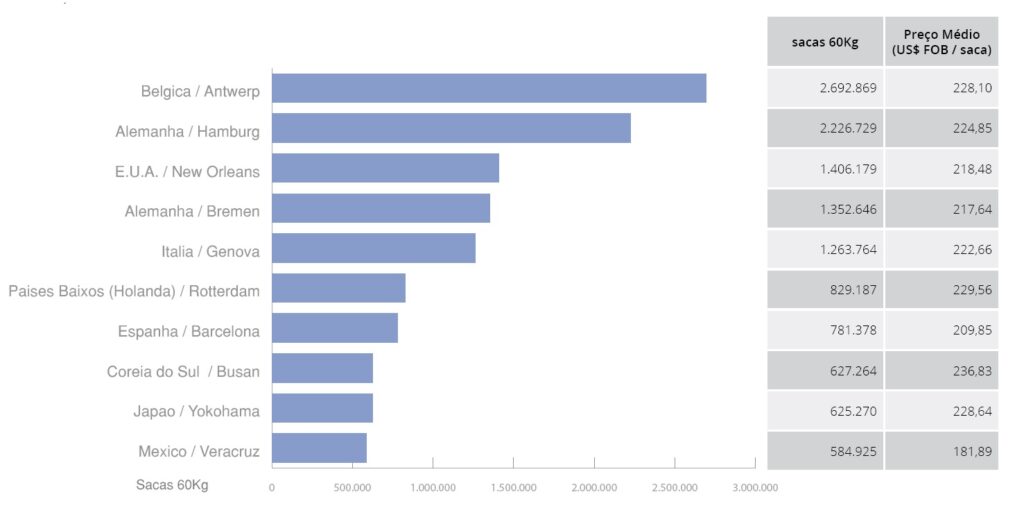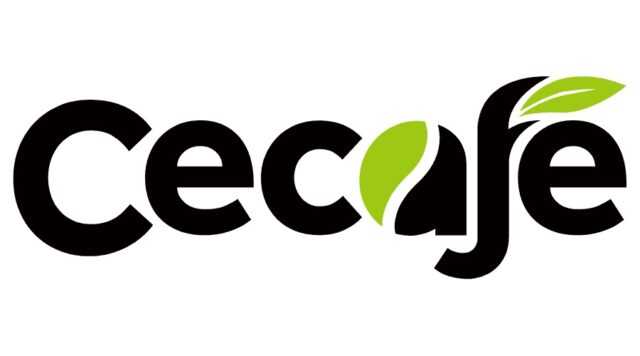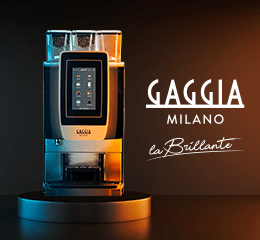MILAN – Brazilian exports are still in full swing all over the world: according to Cecafé’s monthly figures, released on Tuesday 13 August, Brazil – the world’s largest coffee producer and exporter – shipped 3,774,021 bags of all forms of coffee in July, an increase of 25.7% compared to the same month last year. Green coffee exports were similarly up by 25.7% to 3,391,945 bags.
Arabica volumes rose 13% to 2,491,127 bags; Robusta volumes reached a total of 900,818 bags (+82.2%), close to the record figure of 902,266 bags recorded in November 2023.
There was also a positive trend for processed coffee sales, which grew by 26.3% to 382,076 bags, mostly of soluble coffee.
 Brazilian exports of all forms of coffee since the beginning of the year (January-July) were 46.3% higher than in the same period a year ago, totalling 28,146,455 bags.
Brazilian exports of all forms of coffee since the beginning of the year (January-July) were 46.3% higher than in the same period a year ago, totalling 28,146,455 bags.
Turnover was at a record high, exceeding USD 6.27 billion. Green coffee exports stood at 25,830,585 bags (+51.9%), of which 20,652,101 were Arabica (+31.1%) and 5,178,484 Robusta (+313.7%). Sales of processed coffee amounted to 2,315,870 bags, up 3.9%.
 The USA remained the most important destination country, with a volume of 4,515,517 bags, up 31.1%, in the January-July period.
The USA remained the most important destination country, with a volume of 4,515,517 bags, up 31.1%, in the January-July period.
 They are followed by Germany with 4,027,084 bags (+77%) and Belgium with 2,711,469 bags (+156.3%). Italy was the fourth destination with 2,218,837 (+48.6%). Behind Italy: Japan (+6%), Spain (+92.4%), the Netherlands (+46%) and the United Kingdom (+97.2%).
They are followed by Germany with 4,027,084 bags (+77%) and Belgium with 2,711,469 bags (+156.3%). Italy was the fourth destination with 2,218,837 (+48.6%). Behind Italy: Japan (+6%), Spain (+92.4%), the Netherlands (+46%) and the United Kingdom (+97.2%).
Among the ports of destination, Antwerp consolidated its leadership with almost 2.7 million bags, ahead of Hamburg and New Orleans. Genoa is fifth behind Bremen with 1,263,764 bags.
 In the first seven months of 2024, Brazil exported a total of 1,686,773 bags (+63.8%) to other producing countries. Significant increases were recorded in shipments to Mexico, Vietnam, Ecuador and Indonesia, while Colombia saw a sharp decline.
In the first seven months of 2024, Brazil exported a total of 1,686,773 bags (+63.8%) to other producing countries. Significant increases were recorded in shipments to Mexico, Vietnam, Ecuador and Indonesia, while Colombia saw a sharp decline.
Márcio Ferreira, President of Cecafé, again emphasised the record-breaking exports of Robusta, favoured by a good 2023 harvest and the further abundant volumes from this year’s crop. By now, Ferreira noted, “our robusta and conilon coffee is even being imported by Vietnam and Indonesia.”














